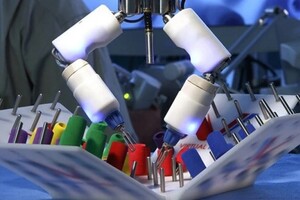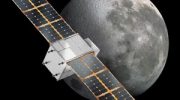The launch of the robot into orbit is planned for 2024.

Scientists from the Nebraska Innovation Campus operating at University of Nebraska-Lincoln, developed a miniature robotic surgeon that can work in space. It was named Miniaturized In-vivo Robotic Assistant, MIRA for short, reports Science Alert.
In 2024, a portable platform for robotic surgery will be delivered to the International space station This will be a test mission that will demonstrate the possibility of functioning of such a system in space.
Read also: Russia's withdrawal from the ISS: “Roscosmos” named new terms
The robot was created by Shane Ferritor and his team. The researcher has already worked with NASA's Kennedy Space Center, the Goddard Space Flight Center, and the Jet Propulsion Laboratory in support of NASA's Mars Exploration Rover (MER) program.
In particular, he helped design and assemble the Curiosity and Perseverance rovers, define the plan of their movement, as well as the development of the process in which the rover's solar detectors are used to determine the direction of its movement.
Ferritor and his colleague Dmytro Oliinikov have been developing MIRA for 20 years and have managed to attract more than $100 million in venture capital. NASA recently awarded their company Virtual Incision a $100,000 grant.
Compared to other robotic systems, MIRA has several advantages. First, its instruments can be inserted through small incisions, allowing doctors to perform minimally invasive surgeries. Second, the use of a robot allows surgeons to work remotely. On Earth, this technology allows medics to help patients in remote places where medicine is not available.
Moreover, MIRA has the advantage of autonomous operation. This means that astronauts who will colonize the Moon or Mars will be able to receive medical care without the presence of a human surgeon.
In August 2021, the robot successfully passed tests during a remote operation on Earth. Over the next year, Ferritor and his colleagues will work on the robot's technologies to adapt it to operations aboard the ISS.
Related video




